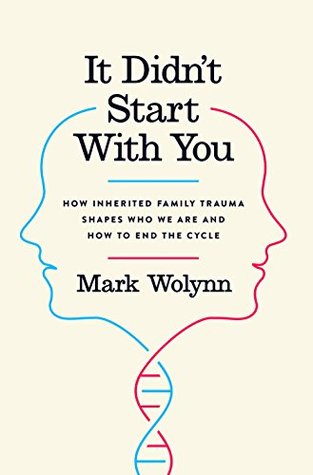More on this book
Community
Kindle Notes & Highlights
by
Mark Wolynn
Read between
June 21 - July 31, 2024
What I failed to realize at the time is that when we try to resist feeling something painful, we often protract the very pain we’re trying to avoid.
I learned how my mind continually taunted me with worst-case-scenario thinking and the lie that if I just worried hard enough, I could insulate myself from what I feared most.
The great teachers understand that where we come from affects where we go, and that what sits unresolved in our past influences our present. They know that our parents are important, regardless of whether they are good at parenting or not. There’s no way around it: The family story is our story. Like it or not, it resides within us.
It didn’t matter how they could or couldn’t love me. What mattered was how I could receive what they had to give.
Recent developments in the fields of cellular biology, neuroscience, epigenetics, and developmental psychology underscore the importance of exploring at least three generations of family history in order to understand the mechanism behind patterns of trauma and suffering that repeat.
Yehuda and her team found that children of Holocaust survivors who had PTSD were born with low cortisol levels similar to their parents’, predisposing them to relive the PTSD symptoms of the previous generation. Her discovery of low cortisol levels in people who experience an acute traumatic event has been controversial, going against the long-held notion that stress is associated with high cortisol levels.
Yehuda’s research demonstrates that you and I are three times more likely to experience symptoms of PTSD if one of our parents had PTSD, and as a result, we’re likely to suffer from depression or anxiety.
An intellectual understanding by itself is rarely enough for a lasting shift to occur. Often, the awareness needs to be accompanied by a deeply felt visceral experience.


